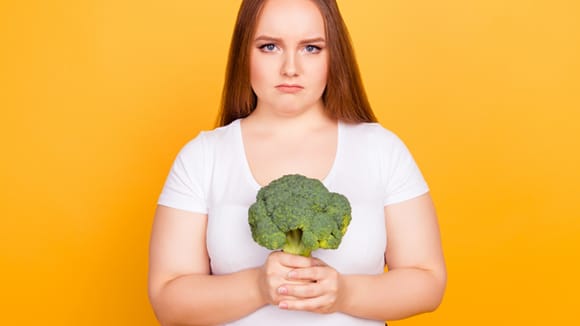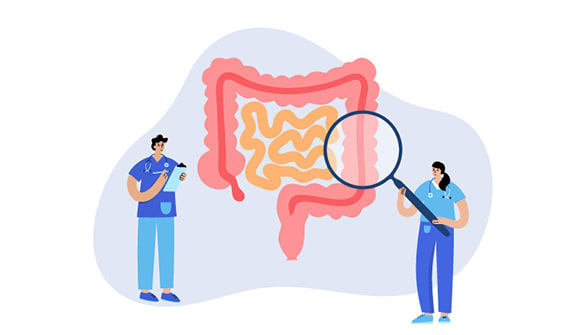Supplements for sleepiness
A vitamin deficiency could be the culprit of your fatigue.
Article Author: Wesley Roberts
Article Date:

We’ve all uttered the words, “I’m exhausted,” after a hectic week at work or a busy weekend with the kids. But how can you tell when you’re just tired, or if the fatigue is a sign of something more serious?
“We all have days when we’re tired, but if we’re having weeks when we’re really exhausted for a long period of time, there could be something else going on,” explained Mona Shah, MD, a board-certified cardiologist with Baptist Heart Specialists, who is also board-certified in holistic medicine. She asks her patients with fatigue three questions:
- Is this something new in the past three to six months?
- Is the fatigue consistent?
- Did the fatigue get worse over time?
If the answer is yes to any of these questions, the patient should undergo further evaluation.
Time for tests
Dr. Shah said about 30% of women in her clinic who report fatigue have underlying heart disease, so she first does testing to measure the heart’s function, including an ultrasound, calcium score and stress test. From these three tests, she can gauge whether the fatigue is related to the heart.
Next, it’s time for blood tests to check for certain vitamin and mineral deficiencies, a common cause of fatigue.
1. Vitamin B12
Vitamin B12 helps make your DNA, produce red blood cells and protect your nervous system.
“Red blood cells transport oxygen through your body,” explained Dr. Shah. “So, when you don’t have enough B12 to produce red blood cells, oxygen doesn’t get transported to your cells, which leaves you feeling tired.”
Most B12 comes from animal products, like yogurt, eggs, meat and seafood, so vegans, vegetarians and others who eat mostly plant-based diets are even more likely to have low B12.
For patients with low B12, Dr. Shah typically recommends an over-the-counter Super B Complex vitamin.
2. Vitamin D
If you’re not having enough fun in the sun (or if you are wearing sunscreen, like you should be!), you may have low vitamin D. It’s hard to get vitamin D from food, unless you eat a lot of dairy, fatty fish, tofu and egg yolks.
“Unlike other vitamins, vitamin D is more like a hormone. Every single cell in the body has a receptor for it,” explained Dr. Shah. “Vitamin D is important for many reasons. It helps promote calcium absorption to strengthen bones and regulates your immune and neuromuscular systems.”
Low vitamin D has even been linked to depression, cancer, heart disease and diabetes.
“With COVID-19, a lot of people were taking vitamin D to help boost the immune system,” said Dr. Shah. “But it’s important to note you can actually take too much, so be careful and discuss with your doctor.”
3. Iron
Iron deficiencies are most common in women due to blood loss during the menstrual cycle.
“Iron is important in making hemoglobin, a protein in your red blood cells, which again, carry oxygen to your organs and tissues,” explained Dr. Shah. “Like we see with low B12, fatigue sets in when you’re not getting enough oxygen.”
Top iron-rich foods include shellfish, red meat, liver and turkey, and iron is easier for your body to absorb when consumed with vitamin C.
“Males shouldn’t have iron deficiency. If a male has low iron, he needs to see a hematologist to make sure there’s no internal bleeding,” said Dr. Shah.
4. Magnesium
“About 70% of Americans are deficient in magnesium,” said Dr. Shah. “It’s incredibly important for energy production, blood pressure regulation, muscle and nerve function, and protein and DNA creation.”
“Only about 1% of total body magnesium is present in the blood. It’s stored in bones, cells and tissues, which makes it difficult to get an accurate reading of your levels through a blood test,” she added.
Seeds, leafy greens, spinach, pumpkin, nuts and dark chocolate are magnesium-rich, though the mineral can’t be easily absorbed from food, so a supplement may be needed.
“It’s my favorite mineral. It can help decrease stress, promote calmness, soothe migraines and prevent inflammation,” said Dr. Shah. “Research has shown magnesium improves heart health and decreases stroke risk.”
Energy boost
Dr. Shah doesn’t recommend multivitamins because, after consulting with a doctor, it’s better to take the specific vitamin your body needs.
If your vitamin levels are normal, and you’re still looking for an energy boost, Dr. Shah has recommendations to discuss with your doctor.
1. Coenzyme Q10 (CoQ10)
CoQ10 is a naturally occurring enzyme that’s made in every cell in your body, and it’s needed to maintain energy production within the cells. It has been shown to help decrease blood pressure, provide migraine relief, lower blood sugar, improve memory and reduce fatigue.
You can get CoQ10 by building your diet on the staples of the Mediterranean diet including fish, olive oil, nuts, seeds, herbs, whole grains, fruits and vegetables.
“The best way to get CoQ10 is with a supplement,” said Dr. Shah. “You can always ask your doctor about getting your levels checked.”
2. Maca powder
Native to Peru, the maca plant has gained popularity in recent years in both a powder form and a supplement.
“It’s not caffeine, but can have a similar effect on the body,” explained Dr. Shah. “It’s good for energy, stamina and even libido.”
She tells her patients to start with a very small amount, like 1 teaspoon, because it can have a strong effect causing jitters and digestive issues.
3. Beets and beet powder
Beet juice contains nitrates, which have been shown to reduce blood pressure and boost the part of the cell that produces energy.
“Vitamins, minerals and supplements aren’t just a free-for-all,” said Dr. Shah. “While beneficial in many cases, they can interact with medicines you’re already taking, or if your levels are normal, you might not need a supplement. Always talk with your doctor.”
If you’re experiencing new fatigue, consistent fatigue or worsening fatigue, it’s time to talk with your primary care physician. Looking for the right doctor for you? Call 904.202.4YOU (904.202.4968) and a Baptist Health care coordinator will get to know you and what you’re looking for in a doctor, and then match you with the one that’s right for you.
To read more about holistic cardiology from Dr. Shah, visit her personal blog at drmonashah.wordpress.com. All information in Dr. Shah's blog represents her own content and opinions, and do not represent those of Baptist Health.



